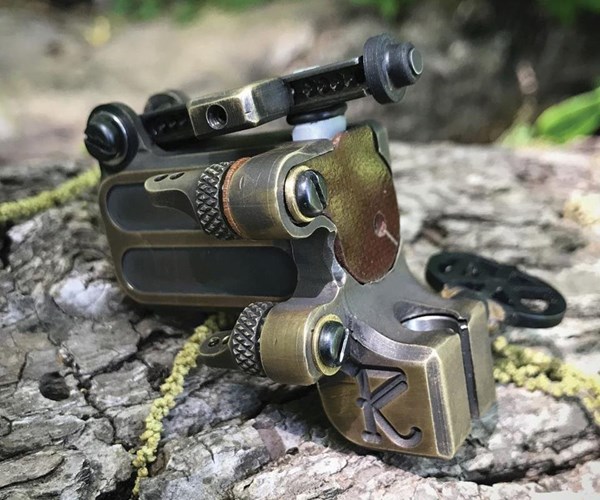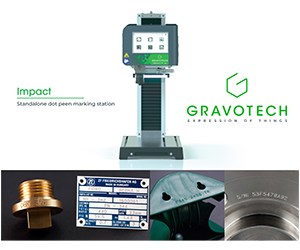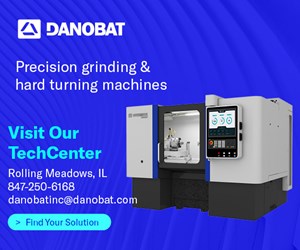Case Study: Manufacturing the Tools for Tattoos
Dan Kubin’s artistry isn’t just skin deep. He’s found a way to channel his creativity into another part of the tattooing process—designing and developing the machines that apply tattoos.

Dan Kubin used to prototype his distinctive rotary tattoo machines using hobbist-type equipment, but the process was too slow to keep up with his creativity and the demand for his products.
When most people think of tattoos, they picture the designs permanently inked on someone’s body. Many of these are beautiful and intricate works of art created by a talented and gifted artist. But tattoo artist Dan Kubin has added another layer to his creativity; he designs and develops the machines used to apply tattoos. Moreover, these machines themselves are works of art.
Mr. Kubin became interested in tattooing when he served as a machinist and welder in the U.S. Air Force. He later began to design and develop tattoo machines manually, outsourcing their machining in bulk. This system was unsustainable, however, due to the number of different designs he makes, combined with the custom-nature of his work. His constantly evolving creativity was frustrating for everyone involved, he says.
Instead of spending a day and a half using a small, hobbyist-type benchtop mill with a digital readout and a rotary table to create the basic frame of new tattoo machine prototypes, Mr. Kubin decided to buy a milling machine with a control so he could develop parts exactly the way he wanted within his own timeframe.
Related Content
-
Best Practices: Machining Difficult Materials
Cutting hardened steel, titanium and other difficult materials requires picking the right tools, eliminating spindle runout and relying on best practices to achieve tight part tolerances.
-
An Additive Manufacturing Machine Shop
Finish machining additively manufactured implants requires different pacing and workflow than cutting parts from stock — different enough for an experienced manufacturer to warrant a dedicated machine shop.
-
Twin Spindle Design Doubles Production of Small Parts
After experiencing process stalls in the finishing stage of production, Bryan Machine Service designed an air-powered twin spindle and indexable rotating base to effectively double its production of small parts.
.jpg;maxWidth=970;quality=90)





.jpg;maxWidth=300;quality=90)






.jpg;maxWidth=970;quality=90)